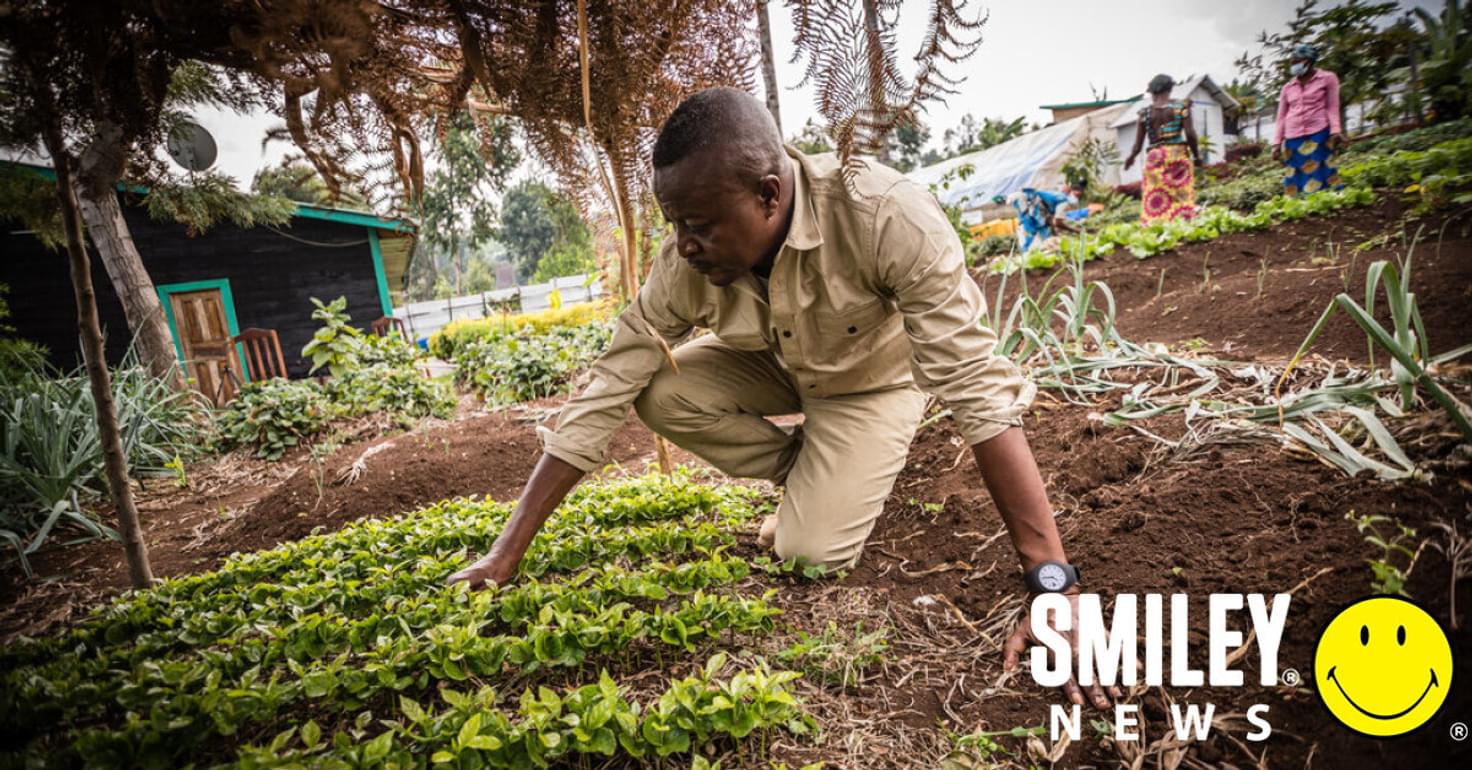
Words by Smiley Team
Growing up in the Democratic Republic of the Congo’s Kahuzi-Biega National Park, John Kahekwa was captivated by the gorillas living in the forest around his community. When he saw the suffering inflicted on these beautiful creatures by poachers, his initial instinct was to stop them. But quickly he learned that rather than opposing these people, he could only find a solution with their help.
This realisation led John to create the Pole Pole Foundation, an initiative to protect local habitats. It operates on the understanding that humans are intrinsically bound up with nature, so effective conservation work depends on support from local people.
“Since creating the Pole Pole Foundation in 1992, my achievements include planting trees to create a kind of buffer zone, and working with communities to prevent them from poaching, cutting down trees and destroying the gorillas’ habitat,” he says.
John’s concern for the natural world started early on. “As a youth I was so impressed by baby gorillas clapping their hands and playing among themselves, as well as the adults who roamed around and beat their chests,” he says.
Witnessing the harm caused to them by poachers’ traps, he felt guilty on behalf of humanity. He couldn’t understand why his neighbours would act in such a destructive way.
[Read more stories about inspiring people protecting life on land]
“So I made a list of people who had been arrested more than 10 or 15 times for poaching and I asked them why they were doing this and destroying their habitats,” he says.
John was still young at the time, and the poachers reacted angrily to his questions, seeing that he didn't understand their own perspectives. While they depended on the surrounding National Park to survive, it had become the property of foreigners.
“Then one of them said something I will never forget,” says John. “They said: ‘We cannot stop because empty stomachs have no ears'.”
From then on, John began saving money to eventually help the gorillas as well as the local communities. Starting with a tip of $10 from an American tourist, he went on to sell T-shirts as souvenirs. Then in 1987 he got lucky, earning hundreds of dollars to play a role in the American drama, ‘Gorillas in the Mist’.
“From $10 I went to having $6,000,” he recounts, “and instead of buying a house for me and my wife, I decided to take a risk in order to save my friends, the gorillas, and help communities with all the wealth I had.”
‘Pole pole’ means ‘slowly, slowly’ in Kiswahili, and just as John slowly accrued the money to invest in this project, he slowly and carefully developed a strategy that would genuinely help both local people and nature.
[Discover other positive news about the individuals and groups making the world a better place]
Since its launch in 1993, the Pole Pole Foundation has planted more than four million trees to preserve local biodiversity and habitats. Nowadays, for every tree that’s cut down, they plant 10 new ones.
Meanwhile, they listen constantly to the needs of local people, who created a vegan club to prevent poaching and the spread of Ebola, which is often caused by eating bush meat. They also grow fruit trees, mushrooms and spirulina, a highly nutritious type of algae that’s effective for treating malnutrition.
The benefits of the foundation extend beyond this. After it was shortlisted for funding of £1 million from the Earthshot Prize, its team hopes to scale up their efforts and protect a greater extent of the Congo Basin, home to the world’s second largest rainforest and carbon sink after the Amazon.
Find more information about the Pole Pole Foundation at polepolefoundation.org.
To support their work, donate here.